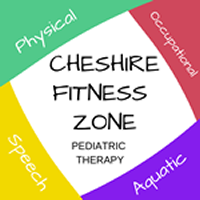Dr. Laurence Benz is an award-winning physical therapist and President/CEO of PT Development LLC. He is also a partner at Evidence in Motion, ProRehab –PC, Texas Physical Therapy Specialists, Breakthrough Physical Therapy, and Fit For Work. A lecturer at universities and national conferences, Larry Benz is a Trustee with the Foundation for Physical Therapy, the University of Louisville, and the Physical Therapist Business Alliance (PTBA). We are honored that Dr. Benz let us pick his brains for some useful insights into the world of physical therapy. You can follow Dr. Benz on Twitter: @PhysicalTherapy
Q1. Please tell our readers something about yourself and about PT Development.
PT Development owns and operates physical therapy centers and related businesses including education, on-site services, and occupational medicine. Our goal is to enable individual private practice owners of clinics to thrive by bringing strategy, scale, systems, and sophistication to their operations. I am a physical therapist who loves working with physical and occupational therapists and positioning them to win.
Q2. People usually tend to associate physical therapy with athletes and accident victims. Who else stands to gain by visiting a physical therapist?
In a traditional medical model, PT’s work in a variety of settings, from pediatrics to geriatrics. We work with folks with disabilities, ‘aches and pains’, and a variety of orthopedic and neurologic insults and trauma, with the goal of maximizing or regaining function and movement. In the non-traditional mode, we work in prevention to maintain or enhance function and movement.
Q3. Is private physical therapy a viable option instead of undergoing physical therapy in a hospital? If there is a cost difference, can the benefits of private physical therapy justify the difference in costs?
Timely question. Private practice is in most cases the most cost-effective physical therapy solution for outpatient services. Here is a recent study with reference:
National Institute of Health Care Reform released a study on disparities between what hospitals charge and what’s charged in physician office or community based setting. Physical therapy was one of the services analyzed in the report.
“Physical therapy services. The analysis examined two common physical therapy services: therapeutic exercises and manual therapy-CPT 97110 and 97140, respectively. In the study population, these two services in 2011 accounted for about $25.9 million of the $38 million in total spending on physical therapy. These and many other physical therapy services are provided in 15-minute units, and price comparisons are based on a single unit of service.
Among autoworkers, physical therapy is more commonly provided in community settings, with less than 20 percent of visits provided in HOPDs. Nevertheless, the study population in 2011 received about 136,000 physical therapy services in hospital outpatient departments. Average prices were 41 percent and 64 percent higher in HOPDs for therapeutic exercises and manual therapy, respectively, than in community settings. For example, a 15-minute unit of manual therapy was $58 on average in HOPDs compared to $35 in community settings (see Figure 4). The distribution of prices was only modestly greater in HOPDs than in community settings, and the degree that the HOPD price distribution skewed higher, though evident, was not as pronounced as for clinical lab tests and other services.”
http://www.nihcr.org/Hospital-Outpatient-Prices
Private practice PT’s lead the profession in almost every way. More board certified specialists, more participation in 3rd party outcomes studies, largest contributors to the Foundation for Physical Therapy, and innovative practice models.
There are definitely some niches and services where hospital outpatient services are the only provider of services, and certainly in many states some patients are exclusive to hospitals (e.g. Medicaid) by legislation.
Q4. On May 2014, you wrote a post on the Evidence in Motion blog that responded to a NY Times article about physical therapy and Medicare claims. Generally, the public does not realize that an increasing number of people are a lot more willing to visit a physical therapist. Was the NY Times article reflective of the lack of realization?
Yes. The bottom line is that physical therapy has won the hearts and souls of patients, communities, enlightened employers, and even the investment community. Physical therapy is winning because it represents that best in cost effective, outcome-oriented care that is based on sound evidence. The data clearly shows that more patients are accessing physical therapy each month. Unfortunately, only one group misinterprets increasing utilization-3rd party payers, including Medicare. They view us as a cost that has to be reduced rather than a professional service that needs to be managed. If they look at their data carefully, an increased utilization reduces cost in terms of surgery, pharmacy, and imaging.
Q5. A lot of people have trouble understanding what ‘occupational therapy’ is. Could you kindly shed some light on what occupational therapy truly is? Can pediatric occupational therapy really make a difference in children’s lives?
Occupational therapy helps patient optimize care and activities of daily living through self management techniques and other interventions. Pediatric occupational therapy makes a huge difference in children’s lives.
Q6. It is not uncommon for people to be filled with anxiety before meeting a physical therapist for the first time. If you could give our readers one crucial piece of advice to calm them down, what would it be?
Think of your visit to a physical therapist as a meeting with a professional that will spend time with you, put their hands on you, and explain things to you. They are there to help with direct, hands on care and to help you help yourself when they are not there. In today’s fast paced, depersonalized health care, a PT will spend ample time with you in a caring, compassionate, and empathetic way. We like to say in our clinics that you will leave our clinic knowing you have been cared for.
Once again, we would like to thank Dr. Larry Benz for being a part of this interview and for sharing his expertise with us and our readers.



